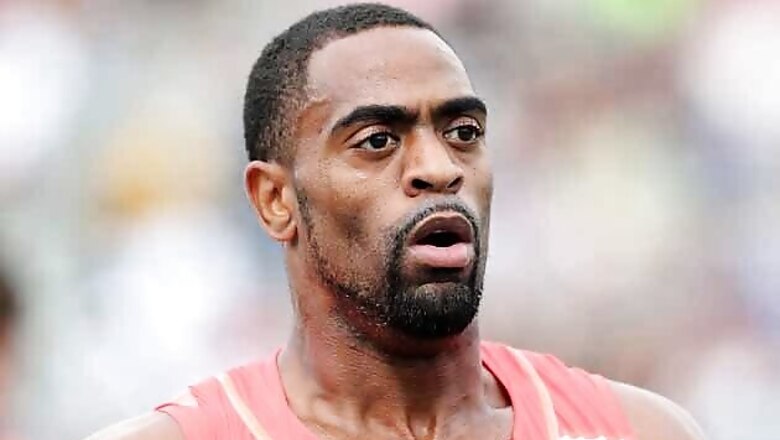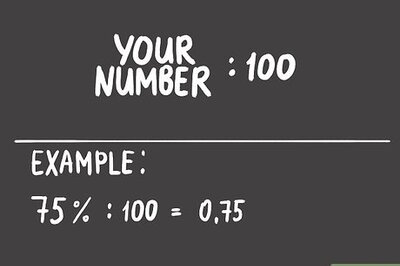
views
The International Association of Athletics Federations (IAAF) will not appeal the one-year ban handed down to Tyson Gay for doping which has put the United States's second-place finish in the 4x100 metres relay at the 2012 London Olympics in jeopardy.
Gay, the world's joint second fastest man, was banned for one year following a 2013 positive test for an anabolic steroid and stripped of all results from July 2012.
The 31-year-old was banned by the US Anti-Doping Agency (USADA) subject to appeal by the IAAF or the World Anti-Doping Agency.
"After careful review of the full file provided by USADA, the IAAF has decided that the one-year sanction applied in the case of Tyson Gay was appropriate under the circumstances and in accordance with IAAF Rules," it said in a statement to Reuters on Thursday.
"Consequently, the IAAF decided not to exercise its right of appeal. The IAAF will not make further comments on the content and merits of the assistance provided by the athlete."
The IAAF has published the sanction and sent it to the IOC in order for them to follow-up with the Olympic Games result and medals.
Although IAAF rules state that all relay members lose their medals from a competition if there is a doping violation, the IOC has control of the medals for the Olympics and it has not always taken medals from all relay members.
A decision by the IOC's Executive Board on the US case could come early next month when the board meets in Lausanne on July 7-9.
Gay has already returned his silver medal to the United States Olympic Committee, but still to be determined is whether his team mates - Trell Kimmons, Justin Gatlin and Ryan Bailey - as well as Jeff Demps and Doc Patton, who ran in the preliminary rounds, will lose their medals.
If the United States is disqualified, third-placed Trinidad and Tobago would be eligible to gain the silver medal, and fourth-place finisher France could receive the bronze.
Jamaica won gold.
The USADA had earlier said Gay could have been suspended for two years for his first doping offence but received a shorter ban because of his substantial assistance towards the investigation.
The World Anti-Doping Agency earlier this month said it would not appeal the controversial decision.
WADA said the ban, which has been widely criticised in Europe as too lenient, was "compatible with the World Anti-Doping Code."
Gay's ban expired on June 23, and he is expected to return to action when he meets Gatlin over 100 metres at the Lausanne Diamond League meeting on July 3.














Comments
0 comment